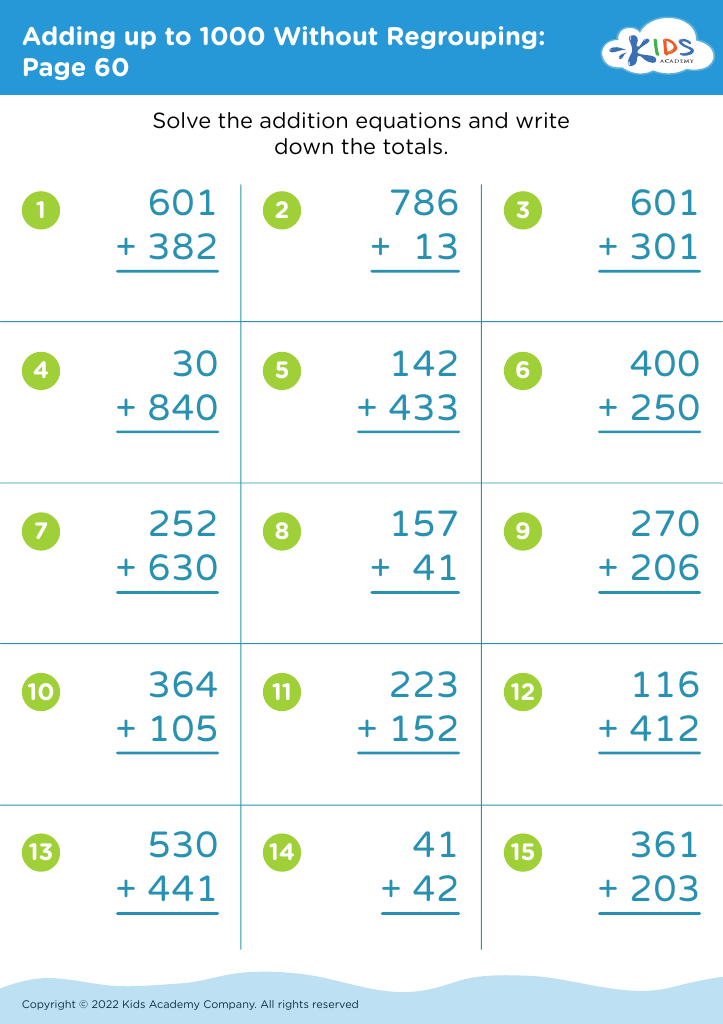Improve counting skills Adding up to 1000 Without Regrouping Worksheets for Ages 8-9
4 filtered results
-
From - To
Boost your child's counting skills with our engaging "Adding up to 1000 Without Regrouping" worksheets, specially designed for ages 8-9. These fun, interactive printable worksheets help students master addition while simplifying the learning process. By focusing on calculations without the cumbersome regrouping step, children can enhance their number sense, increase accuracy, and build confidence in mathematical abilities. Perfect for both classroom and home use, our resources support diverse learning styles, ensuring every child excels. Foster a love for math and lay a strong foundation for future success with these expertly crafted addition worksheets.
Improving counting skills and the ability to add up to 1000 without regrouping is crucial for children ages 8-9 for several reasons. Firstly, it strengthens their foundational math skills, as early proficiency in basic arithmetic lays the groundwork for more complex mathematical concepts. This proficiency enhances their confidence and interest in math, making them more enthusiastic learners.
Secondly, these skills are essential for everyday life. From handling money to understanding measurements and time, practical applications of addition are countless. When children can efficiently perform these calculations, they are better equipped to navigate real-world situations.
Moreover, arithmetic without regrouping helps in strengthening cognitive abilities such as memory, attention to detail, and logical thinking. This mental rigor promotes overall academic excellence since mathematical competence is often tied to higher achievements in other subjects.
For teachers, a solid grounding in these skills allows for smoother transitions to more advanced topics like multiplication and division, minimizing learning gaps that can become obstacles later. For parents, fostering these skills at home encourages educational involvement and demonstrates the value of consistent practice and perseverance.
In sum, focusing on counting and addition skills without regrouping empowers children, setting a vital stepping stone for their educational journey and everyday problem-solving capabilities.














